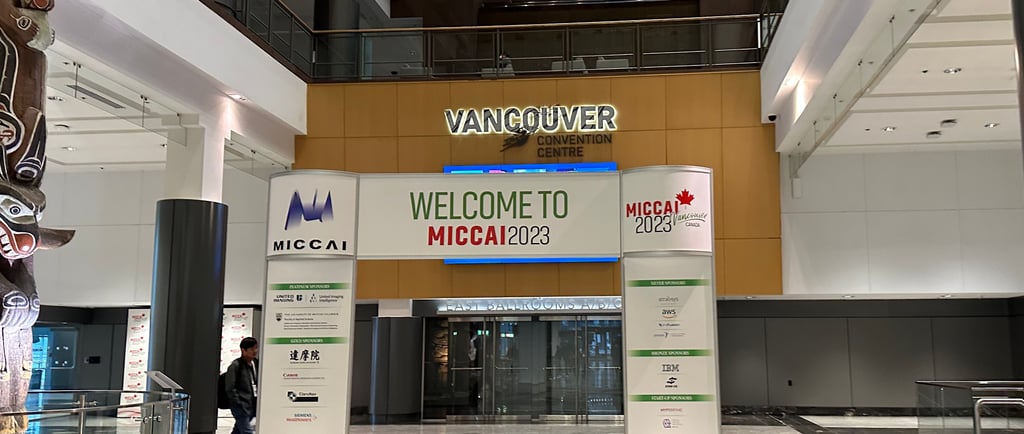MICCAI 23
An Exciting Milestone: Three Papers Accepted at MICCAI 2023 in Vancouver, Canada.
NEWS
10/1/20231 min read
As the 26th International Conference on Medical Image Computing and Computer Assisted Intervention (MICCAI 2023) approaches, scheduled for October 8th to 12th in Vancouver, Canada, I am pleased to announce that three of my research papers have been accepted for presentation. This prestigious conference brings together experts in medical imaging and computer-assisted interventions, offering a platform for sharing cutting-edge research and developments in these fields.
Challenging the Norms in Anomaly Detection
The first paper, titled "What Do AEs Learn? Challenging Common Assumptions in Unsupervised Anomaly Detection," delves into the complex world of Autoencoders (AEs) and their role in unsupervised anomaly detection. This field, crucial for medical diagnostics, has always intrigued me, and this paper aims to shed light on new insights and challenge pre-existing notions.
📌 You can catch me at the poster presentation on Monday, 9th October, from 16:00 to 17:30 to delve into this topic.
Paving the Way with Pseudo-Healthy Generative Networks
Our second paper, "Reversing the Abnormal: Pseudo-Healthy Generative Networks for Anomaly Detection," introduces a groundbreaking approach to anomaly detection in medical imaging. This work explores how generative networks can be used to create pseudo-healthy images, offering a fresh perspective on identifying and understanding abnormal medical images.
📌 You'll find me at the poster presentation sessions where we can discuss this innovation further on Tuesday, 10th October, from 13:00 to 14:30.
Addressing Bias in Brain MRI
Lastly, the pressing issue of bias in unsupervised anomaly detection, especially in brain MRI studies, is the focus of our third paper, "Bias in Unsupervised Anomaly Detection in Brain MRI." This research will be featured at the MICCAI FAIMI Workshop, and I'll be giving a 🗣️ talk on October 12th from 16:00 to 16:15 to delve into the challenges posed by biases in medical imaging. Join me for an insightful discussion on this crucial topic.


